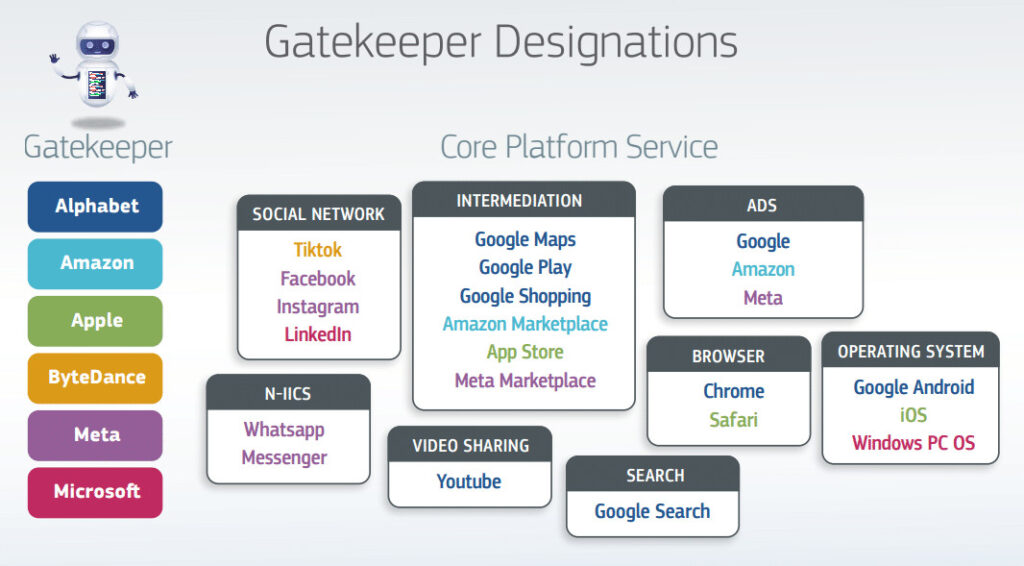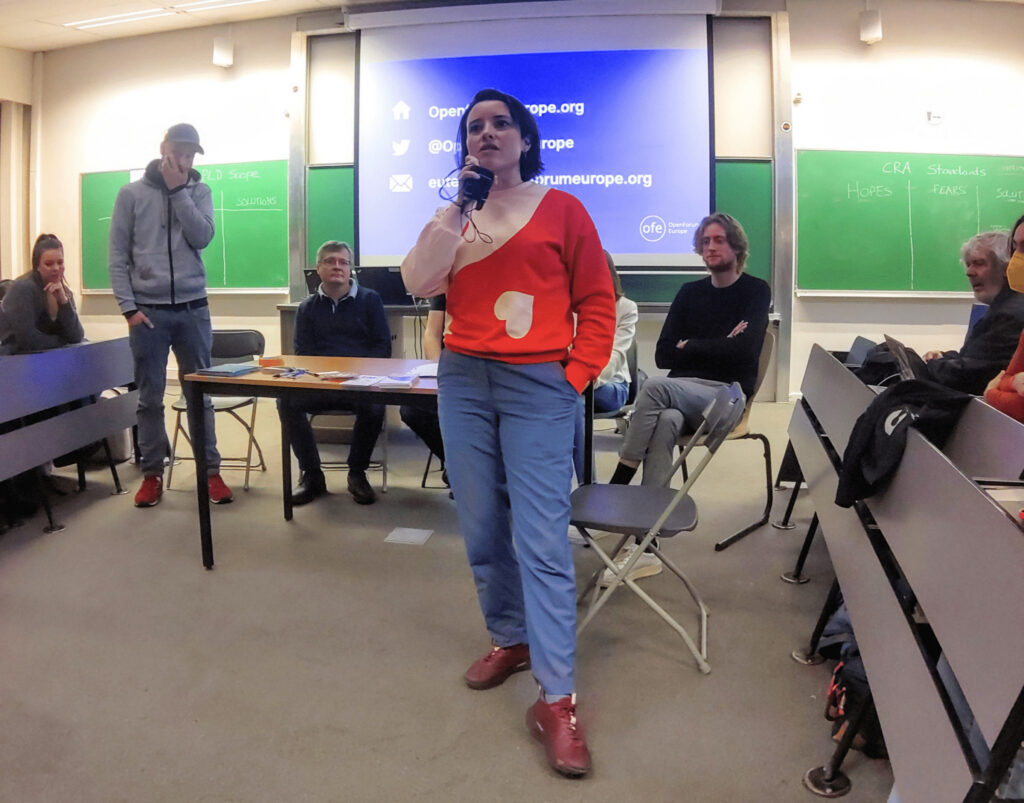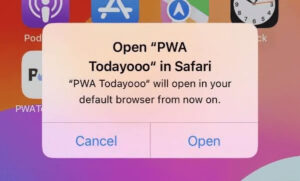
The impact of the DMA on businesses: Apple & Match meetings
Enforcement of the Digital Markets Act is just weeks away, with changes that will put the brakes on anticompetitive practices by big tech “gatekeepers”, and guarantee fair competition for developers and free choice for users. Unfortunately, some gatekeepers are dragging their feet. In the last two weeks, I spoke to Apple about their deeply flawed DMA compliance plans, and to Match, the makers of Tinder, about how the law will impact them.
Big tech companies own many of the apps we use every day, as well as the devices and software they run on. From Apple’s iPhone, Google’s Android, and Microsoft’s Windows, to social networks like TikTok, Facebook or Instagram, and chat apps like WhatsApp and Messenger.

Unfortunately, over the last decade, we’ve seen these companies use this power against us by stifling competition, meaning both users pay more than they should, and developers can’t compete fairly with big tech’s products. We call this “gatekeeping”. The DMA aims to fix this, by forcing these “gatekeepers” to open up their ecosystems and let Developers compete fairly, it also means users and developers should have access to more features.

First, on 15 February, I met with one of the gatekeepers, Apple. A week prior, they published their plans to comply with the Digital Markets Act, and it would be an understatement to say they were not well received: one app developer called them “a complete & total farce”, while others labelled apple’s strategy as “extortion” and “a middle finger to the DMA”.

I share these concerns: Apple’s proposals seemingly seek to undermine the spirit and goals of the DMA: their proposed changes would continue to unfairly promote their own products to the detriment of competitors. In addition to this, they have already taken action to limit the use of Progressive Web Apps, a type of app that can be installed without the AppStore.
In our meeting, I asked about the justification for Apple’s proposed Core Technology Fee, ( a €0.50 yearly fee for every user over 1 million users). I also asked for the reason that they are forcing developers to choose between Apple Pay or Third-party providers, but not allowing both. Finally, I asked about their recent restrictions on Progressive Web Apps.
Their answers did not satisfy me: as I see it, Apple has deliberately made the alternatives provided for under the DSA unattractive to developers, to ensure that developers choose to remain locked in their ecosystem.
Only time will tell if Apple’s changes will have any benefit for developers, but I would like to see the European Commission take the first steps for a swift enforcement action if the changes put in place do not follow the rules and the spirit of the DMA.
On the 20th February, I then met with Match Group, the developers of popular dating apps Tinder and Hinge, who stand to benefit from the DMA. They echoed the serious reservations I have about Apple’s DMA plans, and underlined that we should not allow gatekeepers to circumvent the legislation.
Discussions focussed particularly on the “Core Technology Fee”. Match Group expressed their view that a yearly fee could be – if Apple were hosting the application in their app store – be fair, but found it is difficult to justify when the app in question isn’t in their App Store. This raises the question: is it really a “core technology fee”, or is it a “customer acquisition fee”? We also discussed the potential incompatibility of Apple’s approach with the principles of Fair, Reasonable and Non-discriminatory licensing.
I agreed to stay in touch with both organisations as we approach the enforcement deadline. And look forward to meeting many more companies and views on this important piece of legislation.
You can find the briefing for my meeting with Apple, including some of the questions I asked, here.